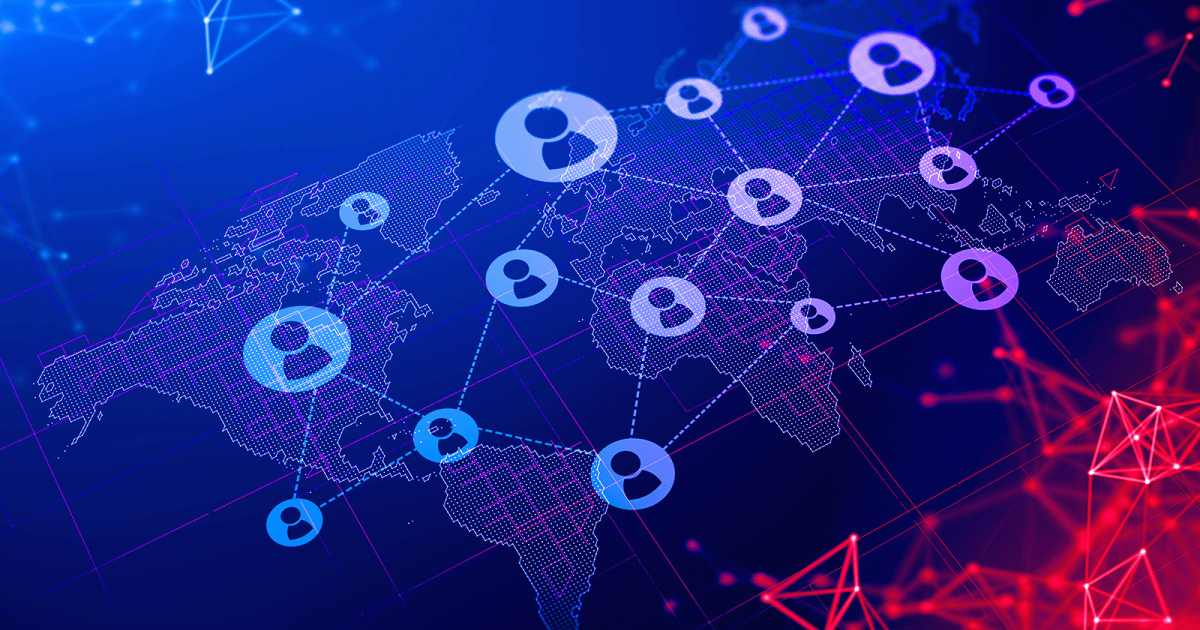In the fast-evolving landscape of blockchain and cryptocurrency, one concept has gained significant attention and is reshaping traditional business models and governance structures – Decentralized Autonomous Organizations, commonly known as DAOs. With the rise of Bitcoin and its underlying technology, blockchain, the potential of DAOs to revolutionize various industries and sectors cannot be underestimated. In this article, we’ll delve into the world of DAOs and how they might shape the future of organizational governance. Visit Immediate Peak, which enables investors to make informed decisions while lowering the chance of losing their money.
Understanding DAOs: Unleashing the Power of Decentralization
Decentralized Autonomous Organizations, or DAOs, are a novel way of organizing and managing entities in a decentralized manner. At their core, DAOs operate through smart contracts on blockchain networks, such as Ethereum. These smart contracts encode rules and protocols that guide the organization’s decision-making processes, governance mechanisms, and distribution of resources. The beauty of DAOs lies in their autonomy – they operate without a central authority, relying on code and consensus to function.
The Building Blocks of DAOs
- Smart Contracts: Smart contracts are self-executing agreements with the terms of the contract directly written into code. These contracts ensure transparency and immutability, as once deployed on the blockchain, they cannot be altered without consensus.
- Token Governance: DAOs often utilize token-based governance systems, where participants hold tokens that represent voting power. The more tokens held, the more influence one has in decision-making processes.
- Decentralized Decision-Making: Traditional hierarchical decision-making structures are replaced with on-chain proposals and voting mechanisms. This allows for more inclusivity and reduces the concentration of power.
The Synergy between DAOs and the Bitcoin Ecosystem
The advent of Bitcoin marked a pivotal moment in the evolution of decentralized technologies, paving the way for a plethora of groundbreaking innovations rooted in blockchain technology, one of which is the conception of Decentralized Autonomous Organizations (DAOs). While Bitcoin primarily serves as a digital currency and doesn’t offer the extensive capabilities for constructing intricate smart contracts akin to Ethereum, its bedrock principles centered around decentralization, security, and transparency have exerted a profound impact on the conceptualization and growth of DAOs. These principles have acted as a guiding force, shaping the architecture and governance structures of DAOs, and have played an instrumental role in catalyzing their development and widespread adoption across various domains.
Bitcoin’s Legacy: A Catalyst for DAO Evolution
- Decentralization: Bitcoin’s distributed nature and consensus mechanism have set a precedent for trustless interactions, paving the way for DAOs to function without intermediaries.
- Immutable Transactions: DAOs draw inspiration from Bitcoin’s irreversible transactions. Smart contracts within DAOs ensure that agreements are executed without the possibility of tampering.
- Transparency and Auditing: The transparent and public nature of Bitcoin’s blockchain has influenced the emphasis on transparency and auditing within DAO operations.
Industries Transformed: Real-World Applications of DAOs
DAOs have the potential to disrupt various industries, redefining governance and collaboration. Here are some examples of how DAOs are being leveraged:
- Decentralized Finance (DeFi)
DAOs have become integral to the DeFi ecosystem, enabling decentralized lending, borrowing, and trading platforms. Token holders in these DAOs participate in protocol upgrades and parameter adjustments, shaping the future of financial services.
- Content Creation and Curation
Content platforms powered by DAOs reward creators and curators based on community consensus. This approach eliminates intermediaries and empowers content producers while ensuring high-quality content.
- Supply Chain Management
DAOs offer enhanced transparency and traceability in supply chains, reducing fraud and ensuring ethical sourcing. Participants in the DAO oversee product verification and supply chain audits.
Challenges and Future Outlook
While DAOs offer numerous benefits, they also face challenges that need to be addressed:
- Legal and Regulatory Concerns: DAOs operate across borders, raising questions about their legal status and potential regulatory hurdles.
- Governance Efficiency: Ensuring effective decision-making and consensus mechanisms without bottlenecks remains a challenge.
- Security: As DAOs handle valuable assets and sensitive data, robust security measures are essential to prevent attacks.
DAOs have the potential to revolutionize how we organize, collaborate, and make decisions. Their innovative approach to governance and decentralized operations opens doors to a more inclusive and efficient future.
Conclusion
In conclusion, the fusion of Decentralized Autonomous Organizations, facilitated by the rise of blockchain technology creates a landscape ripe for transformation. With the principles set forth by Bitcoin and its innovative capabilities, DAOs are poised to redefine governance, business models, and interactions across industries. From DeFi to supply chains, their impact is far-reaching and game-changing. As we continue to explore the possibilities, one thing is certain – DAOs are here to stay, shaping the future of decentralization and collaborative decision-making.

